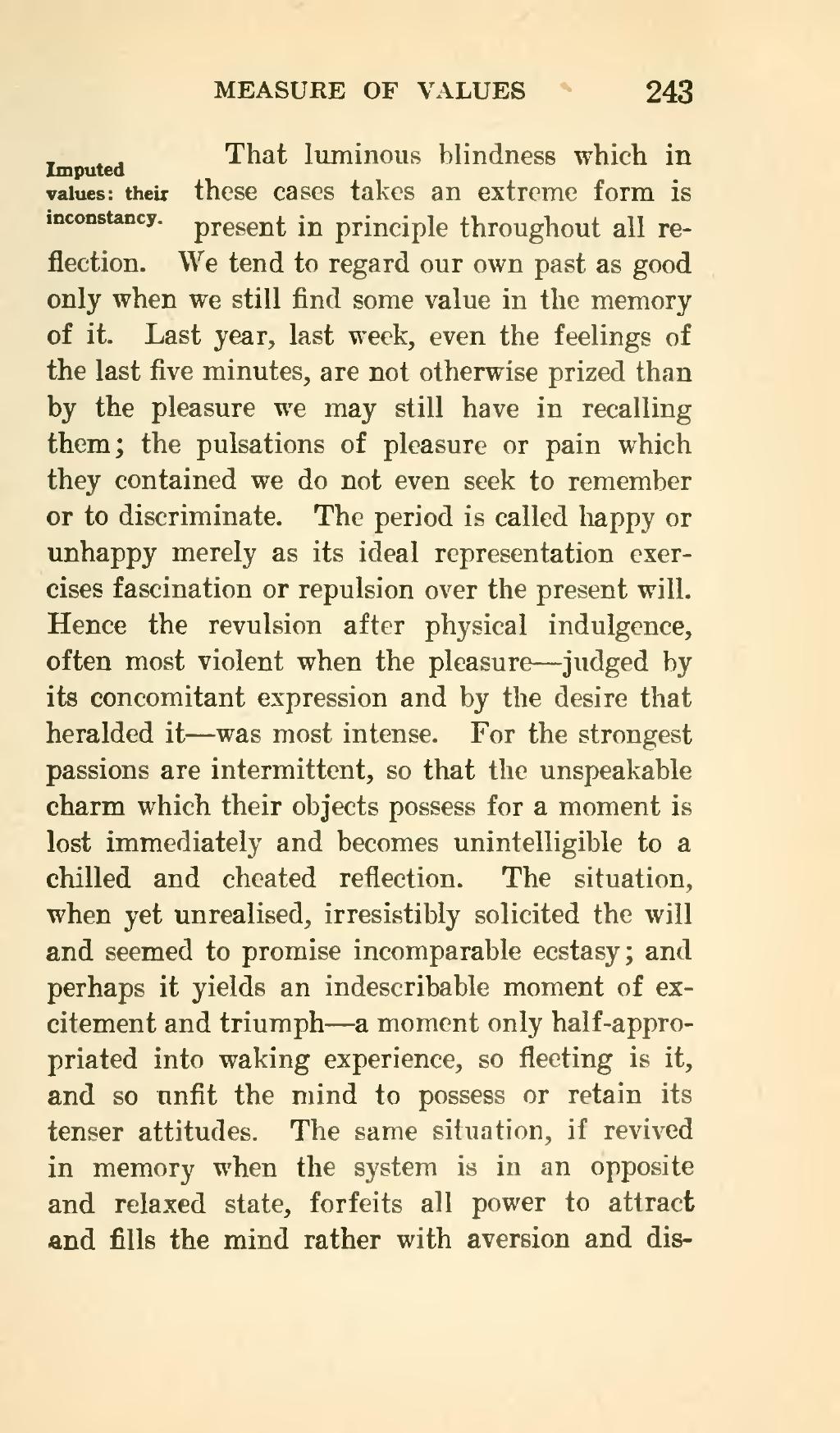That luminous blindness which in these cases takes an extreme form is present in principle throughout all reflection. We tend to regard our own past as good only when we still find some value in the memory of it. Last year, last week, even the feelings of the last five minutes, are not otherwise prized than by the pleasure we may still have in recalling them; the pulsations of pleasure or pain which they contained we do not even seek to remember or to discriminate. The period is called happy or unhappy merely as its ideal representation exercises fascination or repulsion over the present will. Hence the revulsion after physical indulgence, often most violent when the pleasure—judged by its concomitant expression and by the desire that heralded it—was most intense. For the strongest passions are intermittent, so that the unspeakable charm which their objects possess for a moment is lost immediately and becomes unintelligible to a chilled and cheated reflection. The situation, when yet unrealised, irresistibly solicited the will and seemed to promise incomparable ecstasy; and perhaps it yields an indescribable moment of excitement and triumph—a moment only half-appropriated into waking experience, so fleeting is it, and so unfit the mind to possess or retain its tenser attitudes. The same situation, if revived in memory when the system is in an opposite and relaxed state, forfeits all power to attract and fills the mind rather with aversion and dis-
